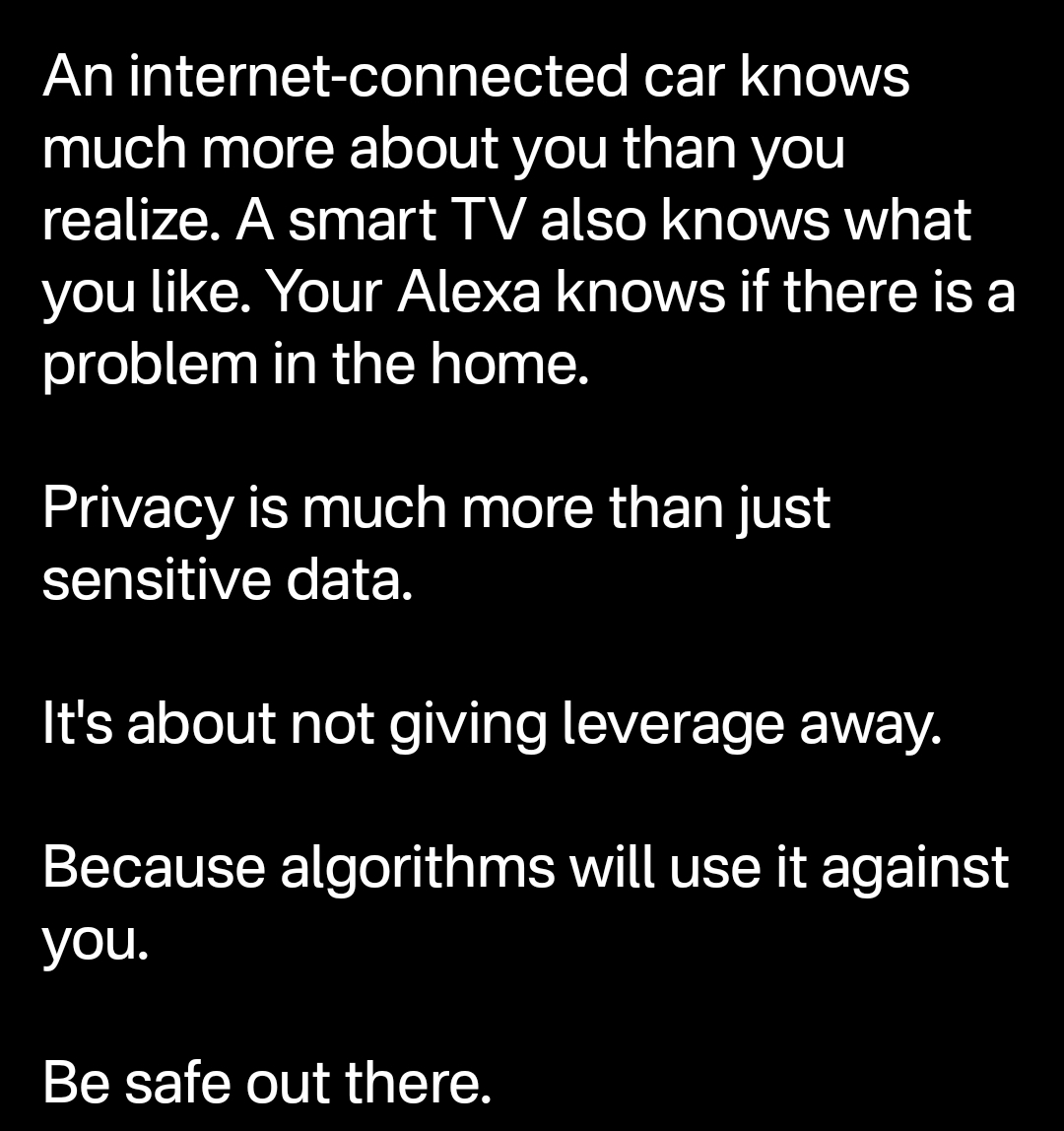
post text
Picture this:
- You type on Google “laptop won’t turn on”
- Google now knows you have a broken laptop and can estimate how desperate you are to fix it.
- Because it knows how desperate you are, it can increase shop prices proportionally.
You are going to pay the maximum they get you to pay.
That’s algorithmic pricing.
The more companies know about you, the more they can predict and sell how desperate you are to other stores out there.
An internet-connected car knows much more about you than you realize. A smart TV also knows what you like. Your Alexa knows if there is a problem in the home.
Privacy is much more than just sensitive data.
It’s about not giving leverage away.
Because algorithms will use it against you.
Be safe out there.

You don’t need a monopoly for this to be a problem.
Databrokers can offer data sets of “customer price elasticity”. Tables of “how much we think X would spend on these generic item categories”. Eg “booly would pay $15 for a burger, vs $10 average”
Point of Sale systems could start offering integrations to these data sets.
All shops have to do now is set a list price, a minimum price, a category, and leave it up to the PoS to (not) give discounts.
You want a burger, you’re fed a single-use short lived discount “$5 off a $20 burger. Today only” While someone else gets “buy one get one free”.
It’s then a ‘fair’ market. Shops have and ‘compete’ with their (high) list prices, data brokers compete with “excess profit” statistics (ie, how much more money above the minimum price they made). Nobody is colluding, they’re just basing discounts off external arbitrary signals.
It slowly becomes the norm to get just-in-time discounts, and the consumer gets shafted. If you’re not in the system, you’re paying more than everyone else.
(And all of this has been happening in some markets for over a decade)